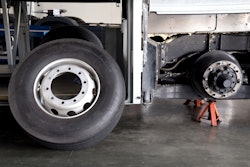
The Suppliers Partnership for the Environment (SP), in collaboration with the MEMA Center for Sustainability, has released a new set of educational resources to help automotive suppliers improve the effectiveness and efficiency of their environmental sustainability reporting and engagement efforts.
The release of these resources builds on the previously announced collaboration between SP and MEMA to reduce the burden of sustainability reporting across the automotive value chain and promote shared approaches to supplier sustainability engagement, the companies note.
Developed through SP’s Impact Steering Committee — comprised of sustainability leaders from major automakers and Tier 1 suppliers, many of whom also serve on the MEMA Sustainability Council — the resources are designed to help suppliers meet the rising expectations around sustainability disclosure and performance. The materials offer practical tools and guidance for responding to data requests and cascading those requests to their own suppliers.
“These new resources are one step in a broader effort to identify options to further streamline supplier sustainability engagement and reduce reporting burdens, especially for small and medium-sized companies with limited internal resources,” says Kellen Mahoney, executive director, Suppliers Partnership for the Environment. “By providing industry-developed templates and frameworks, we aim to help suppliers more easily navigate growing sustainability expectations and take meaningful steps toward environmental improvement.”
“As sustainability expectations continue to evolve, it’s essential that we equip vehicle suppliers with tools that are both practical and aligned across the industry,” adds John Chalifoux, chief sustainability officer, MEMA Center for Sustainability. “Through our collaboration with Suppliers Partnership for the Environment, we’re helping reduce the burden of sustainability reporting and enabling suppliers to focus their limited resources on actions that drive measurable progress.”
The organizations add the newly released materials include summaries of key sustainability reporting frameworks and industry reporting expectations, customizable internal education tools, voluntary reporting templates and curated links to third-party resources that support action in key environmental areas. Together, they offer a centralized hub to help suppliers navigate the current reporting landscape, strengthen internal alignment and engage their own suppliers in sustainability efforts.
These voluntary resources are intended to complement existing customer-specific processes. All materials were developed and reviewed by representatives from major North American OEMs and suppliers participating in SP’s Impact Steering Committee with the goal of promoting efficiency and reducing waste in supplier sustainability reporting efforts, the groups say.










